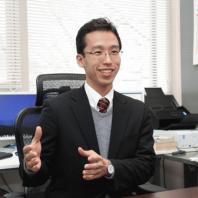![]()
![]()
Research Support Office Research Advancement Division. Tokyo University of Agriculture and Technology
| TEL | +81-42-367-5944 |
|---|---|
| FAX | +81-42-367-5946 |
This program is supported by MEXT’s scientific technology human resource development fee grant, "Program to Disseminate Tenure Tracking System".
Home > Tenured Faculties > Kose Ryota

Kose Ryota

| Research experience | ・2011. Apr. - 2011. Oct: Post-doc Researcher, Kyushu University |
|---|---|
| Educational background | ・2005 Graduated Faculty of Education, Shizuoka University |
| Awards | (At Sep. 2018) |
| Selected papers and publications | (At Sep. 2018) |
In order for the human race continues to survive longer in a finite global ecosystem, it is important that we promote the recycling of renewable resources. "Paper" is one of the materials with high recyclability. The raw of the paper is a tree and a domestic waste paper utilization ratio reached 63% in 2011(※1). Furthermore, the waste paper which can't recycle due to high damage has been used as solid fuel. The carbon dioxide caused by burning the waste paper is absorbed into the ecosystem of the earth. In addition, 400 million tons of the paper and paperboard is produced per year in a global scale(※2).
In my laboratory, I would like to try to develop new recycling system for waste paper. A key of this system is a nanofiber. The strength of the waste paper decreases with increasing of recycling times, because the fiber in the waste paper becomes shorter and hardened after recycling. Therefore, I produce nanofibers from the waste paper and then use the nanofiber to strength paper and produce new material with water resistance and high strength. It is expected that the new recycling system contributes to a recycling-oriented society, a paper and wood industry.
※1 Paper Recycling Promotion Center HP
※2 "paper and paperboard Statistics Annual Report " Japan Paper Association (2012)
Tenure track system offers enough time and money to young researchers. In addition, it is possible to receive advice from the mentor teacher and this advice is very beneficial for young researchers. The most attractive point is that young researcher can concentrate their research without paying the attention relating with tuition and university management. In addition, it is very attractive that they get the next post if they achieve the examination standards.
Now human race has faced the global environmental problems such as global warming and the depletion of natural resources. If these problems become more acute, we can't live on the earth. However, it is seemed that we have used a lot of energy and resource in the scale destructing the earth's ecosystem in spite of feeling the sense of crisis like this.
I recognize that the college is the place where we can research about this problem comprehensively and objectively. Under this awareness, I would like to continue to research appropriate material and the production process for sustainable society through "Paper" in conjunction with students.